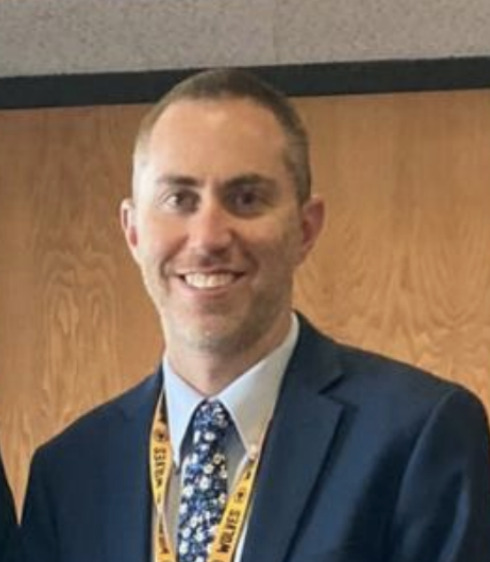School Committees Hold Sudden Executive Session To Discuss Superintendent

Michale Morris. Photo: amherstma.gov
The Amherst Regional School Committee and the Union 26 School Committee met in executive session on Thursday August 17 to discuss School Superintendent Michael Morris. The unscheduled meeting was announced suddenly to school committee members on Tuesday August 15 via email. The email indicated that the meeting would be posted as an executive session “in accordance with MGL c 30A section 21(a), to conduct strategy sessions in preparation for negotiations with nonunion personnel, Michael Morris, with no intention of returning to open session.” The email further indicated that more information would be shared with committee members in the executive session, and was signed by Union 26 Chair Peter Demling and Regional School Committee (RSC) Chair Ben Herrington.
The meeting commenced online with at least 42 people on the call, at least 26 of whom who had been advocates for addressing the crisis of bullying of LGBTQIA+ students at the Middle School and who had been exhorting the RSC to hold an emergency meeting for the purpose of taking a vote to place Morris on administrative leave until accusations against him for failing to pursue complaints about bullying, for failing in his duties as a mandatory reporter, and for abetting a toxic environment at the Middle School had been fully investigated (see also here and here). More than 80% of the membership of the Amherst Pelham Education Association voted no confidence in Morris on May 13 and since then, the union has been demanding that the RSC acknowledge and respond to that vote.
The meeting opened with Demling announcing that the committee would vote to go into executive session with no intention of returning to open session. RSC member Jennifer Shiao asked Herrington to clarify what the meeting was about, noting that when the RSC meets in executive session for the purpose of negotiating a contract, they state clearly the purpose of the meeting. She noted that had not been done in this case. Demling responded that the school committees would meet in executive session for the purpose of developing a negotiating strategy with Mike Morris and that this was necessitated by new information that the school committees have received, and the process had been cleared with the committees’ attorney.
It was not clear whether any other members of the committees aside from Demling and Herrington knew what new information had been received and what was to be negotiated with Morris. RSC member Irv Rhodes had previously communicated in an email to a constituent that he had no idea what was going to be discussed at the meeting. Shiao too had noted in her blog that she had no idea what was to be discussed at the meeting.
The motion to go into executive session was passed by the RSC 7-1 with Shiao dissenting and 5-0 by the Union 26 committee.
Many of those in attendance changed their Google Profile Pictures to a graphic stating “protect trans kids.” Many of the attendees stayed on the call after the committee went into executive session and complained about not having had an opportunity to address the committee as well as about the perceived penchant of the RSC for conducting business outside of the public eye. Some noted that even if this was a personnel matter that mandated confidentiality, the RSC could have been more transparent but had refused to communicate with the public over the last several weeks and had exhibited a consistent aversion to transparency and public engagement. There was an expectation among the attendees that there would be time set aside for public comment though the announcement of the meeting did not indicate a public comment period.
After the meeting, Kairo Serna, a member of the Massachusetts Democratic Committee and Director of Political Affairs for the College Democrats of Massachusetts, said, “Today’s School Committee meeting was a disappointing confirmation that the committee has little interest in civic engagement or an ethical public process. With the exception of Jennifer Shiao, members displayed an undemocratic aversion to transparency, even with dozens of observers in attendance. Further, their refusal to allow public comment demonstrates a shocking unwillingness to engage with constituents who choose to speak out against transphobia, racism, and suppression of public comment. The School Committee’s avoidance of public dissent is nothing short of cowardly and devalues Amherst’s government. If School Committee members cannot be bothered to represent their constituents, I can only hope that the public will vote them out this November for the safety of their children and the community.”
The RSC the Union 26 Committee and will next meet in a joint session on August 22. The meeting will be virtual and begin at 5:30 p.m. The agenda for that meeting can be found here. It includes a report on the superintendent’s resignation, an update on LGBTQ+ supports, and a public comment period.
